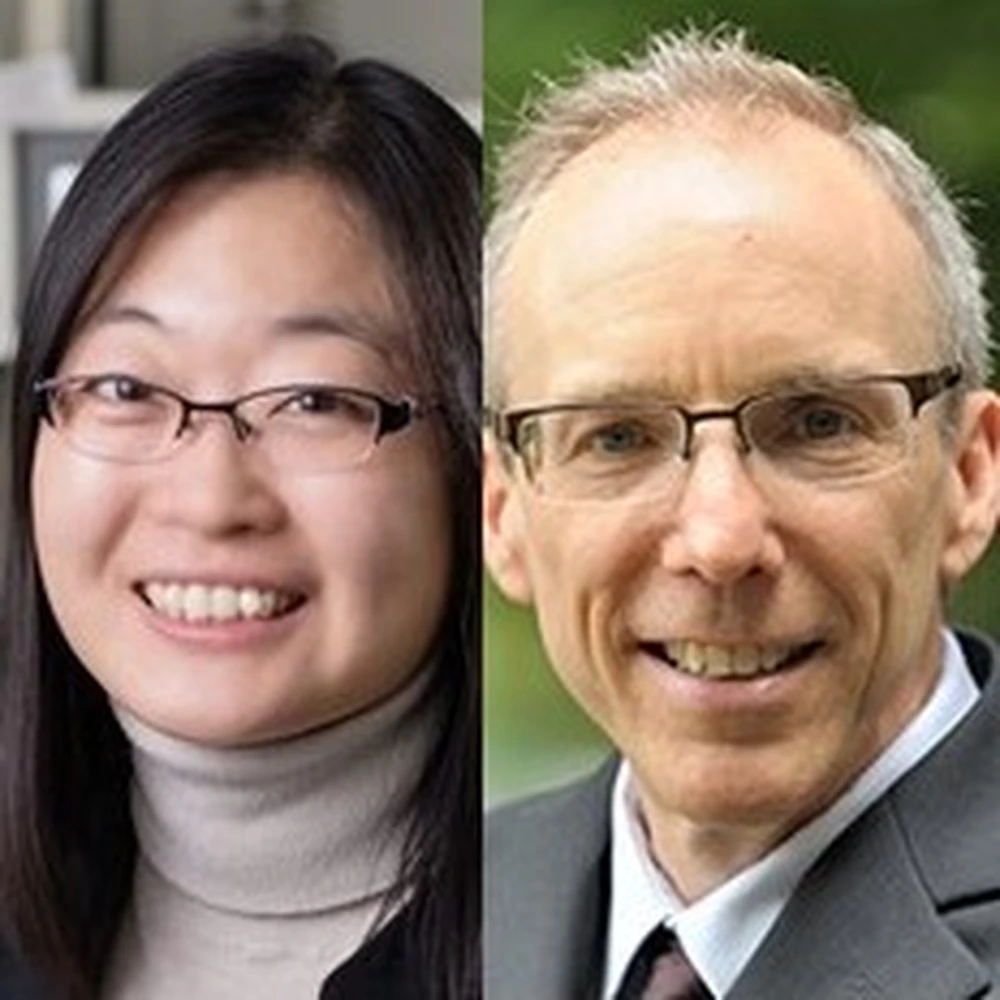
By Jenna Kurtzweil
This year, the Beckman Institute for Advanced Science and Technology seeded three projects as part of its new research seed grants program. The program kick-starts bold scientific projects that reach across disciplines to answer questions that could not be addressed by individual researchers or departments.
“The mission of Beckman is to support interdisciplinary, collaborative, impactful science,” said Beckman Director Nadya Mason, who initiated the program in her first year leading the institute. “Seed grants are a perfect way to fulfill this mission by bringing in diverse people, new collaborations, and out-of-the box thinking.”
One of the three projects to receive funding involves researchers in the Department of Chemistry: Jeffrey Moore, Stanley O. Ikenberry Research Professor and Professor Emeritus of Chemistry, and Ying Diao, associate professor of chemistry.
A helping hand for homeostasis
Homeostasis is the just-right balance of temperature, hormones, and nutrients that keeps living organisms alive — from humans and other animals to microorganisms and plants. Drawing from plant biology, engineering, and chemistry, this proposal’s interdisciplinary team members are designing a method for manually controlling a plant’s homeostasis to boost its resilience in challenging environments.
In living organisms, homeostasis is achieved through a complex, telephone-esque game of chemical call-and-response. If a human being contracts an infection, their immune system advances against the invading bacteria, often smoking out the offending organisms by raising the body’s temperature with a fever. Similarly, in plants, environmental cues like sunlight and humidity act as signals that keep the plant poised to thrive. Basic human control over homeostasis has yet to be achieved.
“If guiding a plant’s homeostasis was possible, it would open up the ability to reimagine reality,” said Ying Diao, the project’s lead investigator and an associate professor of chemical and biomolecular engineering. “Imagine an intelligent cereal crop that could rewire its own anatomy to become cactus-like during periods of extreme drought. That’s the future we are hoping to create. This seed funding allows us to pursue this out-of-the-box idea and collect the preliminary data that will help us secure more funding later on.”
In addition to Moore, Diao’s co-investigators are Yun-Sheng Chen, an assistant professor of electrical and computer engineering and Andrew Leakey, a professor of plant biology.
To create a system for resetting and regulating a plant’s homeostasis, the researchers will focus on a small flowering plant called Arabidopsis thaliana. Their focal point is even smaller: the plant’s stomata, or the small, pore-like holes on the tops of its leaves that maintain the plant’s overall homeostasis by filtering in CO2 and venting out water vapor.
The researchers’ intended system is closed-loop and cybernetic — in other words, a fully controllable system that integrates human-made computation with the plant’s own biology. The loop works something like this: first, the researchers deposit A. thaliana seedlings into a solution containing nano-sized, polymer-based containers of CO, a plant signaling molecule; then, in accordance with its natural metabolism, the seedling will take up the CO containers through its roots; finally, when the containers have diffused throughout the seedling’s stem and leaves, the researchers will use ultrasound to trigger the release of the CO, overruling its natural homeostatic exchange through a controllable system. Throughout the process, the plants will be outfitted with stretchable electronic devices to track tissue growth and overall physiology.
While this initial project focuses on plants, its successful application to microbial systems, animals, and diverse plant species used for food and fuel could have significant implications for climate resilience, food security, environmental sustainability, medicine, and other sectors.
Learn more about all three projects to receive Beckman seed grants in 2023 and their long-term aims.